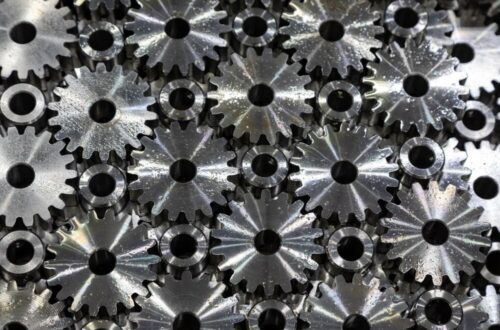
Can Materials Testing Equipment Be Customized for Specific Testing Needs?
Materials testing is a crucial aspect of various industries, including manufacturing, construction, aerospace, and automotive. It involves evaluating the physical and mechanical properties of materials to ensure quality, safety, and compliance with standards. To conduct accurate tests, specialized equipment known as materials testing equipment is utilized. However, given the diverse requirements of different industries and applications, there arises a question: Can materials testing equipment be customized for specific testing needs?
Understanding Materials Testing Equipment
Materials testing equipment encompasses a wide range of instruments and machines designed to assess various properties of materials, such as strength, hardness, elasticity, and fatigue resistance. Common types of materials testing equipment include tensile testing machines, hardness testers, impact testers, fatigue testing machines, and rheometers, among others. These instruments are essential for quality control, research and development, and product certification.
The Need for Customization in Testing Equipment
While standard materials testing equipment serves general purposes, many industries require specialized testing procedures tailored to their unique materials and applications. For example, a manufacturer of medical devices may need to perform biocompatibility testing on materials used in implants, which demands specific testing conditions not provided by off-the-shelf equipment. Similarly, the automotive industry might require testing equipment capable of simulating extreme temperature and humidity conditions for assessing the durability of vehicle components.
Benefits of Customization
Customizing materials testing equipment offers several advantages:
- Precision: Tailoring equipment to specific testing requirements enhances the accuracy and repeatability of test results.
- Cost Efficiency: While customized equipment may incur higher upfront costs, it can lead to long-term savings by optimizing testing processes and reducing material wastage.
- Flexibility: Customized testing equipment can accommodate a broader range of materials and testing conditions, allowing for versatility in research and development activities.
- Competitive Advantage: Industries with unique testing needs can gain a competitive edge by investing in customized equipment that enables them to innovate and differentiate their products.
Challenges in Customization
Despite the benefits, customization of materials testing equipment poses some challenges:
- Technical Expertise: Designing and manufacturing customized equipment requires specialized knowledge and expertise in materials science, engineering, and instrumentation.
- Time Constraints: Developing customized solutions may take longer than purchasing off-the-shelf equipment, potentially delaying testing procedures and product development timelines.
- Cost Considerations: Customization can be expensive, particularly for small-scale operations or industries with limited budgets. It’s essential to weigh the benefits against the costs before investing in customized solutions.
- Maintenance and Support: Customized equipment may require specialized maintenance and support, which could pose challenges in terms of the availability of spare parts and technical assistance.
Examples of Customized Materials Testing Equipment
Let’s explore a few examples of customized materials testing equipment:
Customized Tensile Testing Machines
Tensile testing is commonly used to determine the mechanical properties of materials under tension. Customized tensile testing machines can be designed to accommodate unique sample shapes, sizes, and loading conditions. For instance, in the aerospace industry, where materials are subjected to extreme conditions, tensile testing machines may be customized to simulate high-temperature environments or dynamic loading conditions.
Customized Hardness Testing Instruments
Hardness testing is vital for assessing the resistance of materials to indentation or scratching. Customized hardness testing instruments may be developed to meet specific industry standards or accommodate non-standard sample geometries. For example, in the fabrication of microelectronics components, hardness testing instruments need to be customized to assess the hardness of miniature components accurately.
Customized Impact Testing Equipment
Impact testing evaluates the behavior of materials under sudden loading conditions, such as impact or shock. Customized impact testing equipment may be tailored to simulate real-world scenarios encountered in specific industries. For instance, in the construction industry, where materials are subjected to impact loads during accidents or seismic events, impact testing equipment may be customized to replicate these conditions accurately.
Factors to Consider When Customizing Testing Equipment
When considering the customization of materials testing equipment, several factors should be taken into account:
- Testing Requirements: Clearly define the specific testing needs and performance criteria that the customized equipment must meet.
- Budget Constraints: Evaluate the costs associated with customization, including design, manufacturing, installation, and maintenance.
- Regulatory Compliance: Ensure that the customized equipment complies with relevant industry standards and regulations.
- Future Scalability: Consider the scalability of the customized solution to accommodate future changes or expansions in testing requirements.
Conclusion
In conclusion, Certified Material Testing Products can indeed be customized to meet the specific testing needs of various industries and applications. While customization offers numerous benefits, it also presents challenges that need to be carefully addressed. By leveraging the expertise of materials scientists, engineers, and equipment manufacturers, industries can develop customized solutions that enhance the accuracy, efficiency, and versatility of materials testing processes, ultimately driving innovation and competitiveness in the marketplace.




